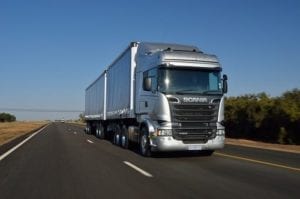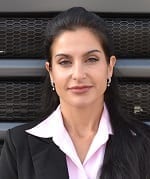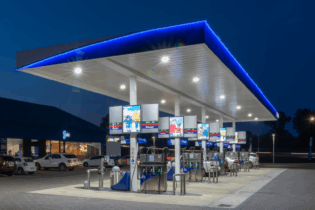Scania is, through its broker partner, negotiating with insurers so that it will have the mandate to perform accident damage repairs in its workshops. This will minimise downtime and reduce the time it takes an assessor to assess a truck and authorise its repairs. “In this way, we know our trucks are fitted with genuine parts and we know – and can guarantee – the workmanship carried out,” she says.
Insurance legislation is different in every country, which means Scania has to liaise with insurance brokers in foreign countries. “The partner we have chosen is already affiliated to brokers in some of the sub-Saharan countries,” she explains. “We can write into a 100 markets that can either be run centrally from South Africa or, if legislation requires, from within those countries through a broker registered there.” She admits that peace of mind doesn’t come cheaply. “We are not offering cheap insurance; we’re offering effective insurance. We give our customers peace of mind about workmanship, genuine parts replacement, and protecting their assets. A proper needs analysis on their business means we cover any gaps that they may have and close the risks they are open to. “It’s all about minimising downtime by making sure we get the truck back on the road, fast. It’s about creating a relationship and partnership for the life of that truck. It’s important that we can give them the service to get the vehicles up and running again to make sure that they’re covered correctly for all the risks and the perils out there and to manage the risk of driver behaviour. In the event that a driver is a multiclaimant, we go to them with data and say: ‘This guy, driving this truck, is claiming frequently, so let’s offer driver training’; let’s get him on board to bring down the loss ratio and that, in effect, helps customers because we don’t have to increase their insurance rates. “We look at the application, the mileage driven, and the load carried. At a claims stage, we’ll look at the condition of the tyres and the truck through the life of the policy. You should be doing an assessment with your customer every six months – a follow-up – and know what condition his/her trucks are in and how he/she manages their fleet. You can step in as a risk manager and make suggestions because as soon as you start managing driver behaviour as well, you start driving down costs – be it on tyres, maintenance, or fuel.”
Tristan Wiggill chats to Belinda Felix about the merits of in-house commercial vehicle insurance.
While vehicle insurance is not legislated, any vehicle sold in South Africa must be insured as a condition of finance. It is a grudge purchase, which has to be made more personal.
“Every single operator has different needs,” affirms Felix. “They operate differently and have different risks. It’s important to go in there and do a full needs analysis on each and every customer, to understand their business, how they operate, what their risks are, and what applications they’re using. Then you tailor your insurance product to meet that customer’s needs. So, every single insurance product is actually a niche product.”
Depending on the size of the operation, it can take anything from a couple of days to a couple of weeks to do this. If you’re moving big funds around, it can take a couple of months. But, it’s worth the wait; in South Africa, you need insurance to protect yourself from the uninsured. If you’re driving a truck and crash it into somebody’s wall or crash into their swimming pool, they can claim against your company and assign liability and/or sue.








